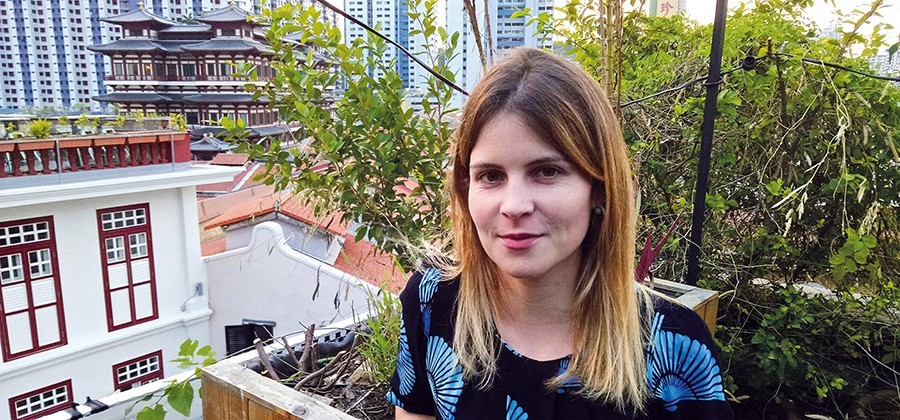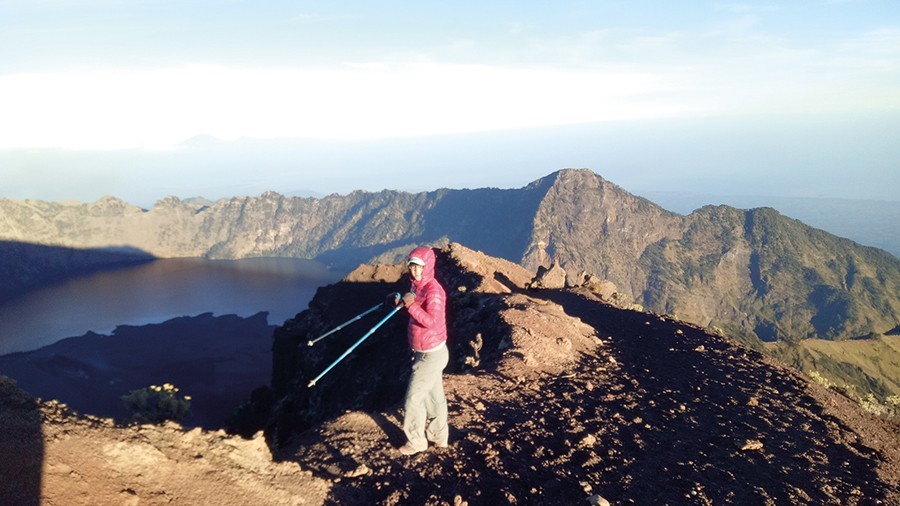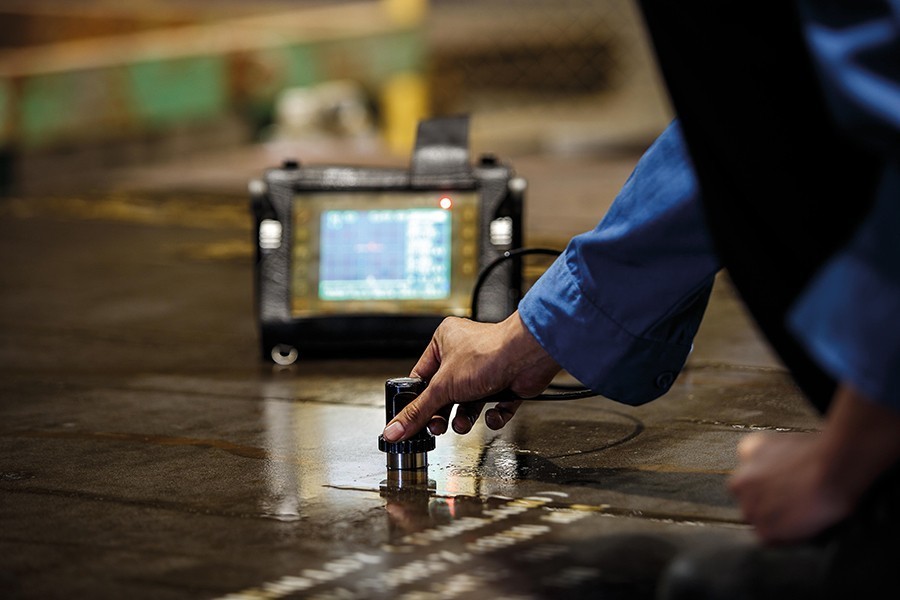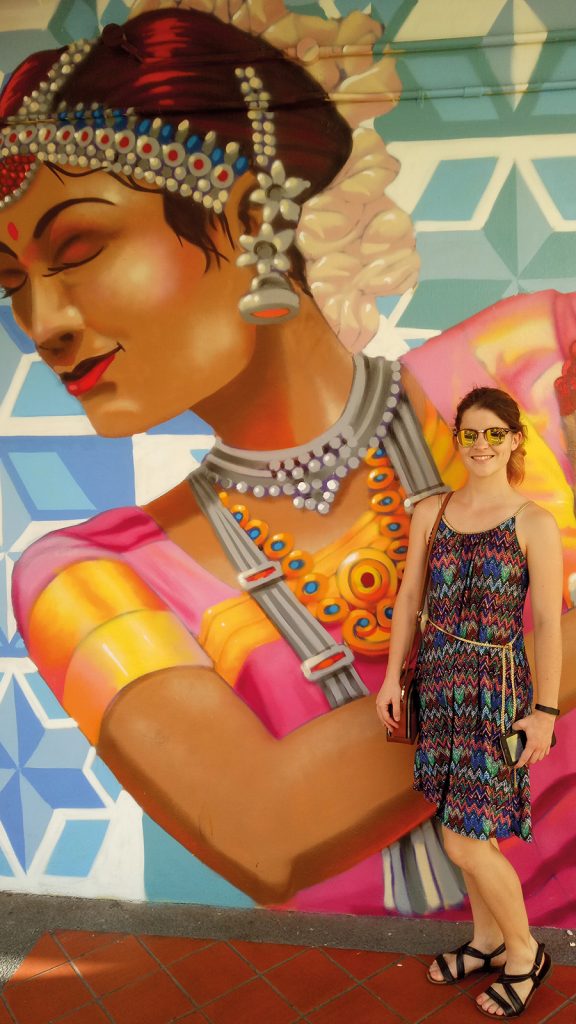Dr Maria Felice works in a little-known but highly sought-after field of engineering that keeps our trains, planes, and roller coasters running safely. She tells Veronica Stivala how her passion for mathematics and physics, coupled with the desire to do a meaningful job, led her to where she is today.
Non-Destructive Testing (NDT) is a field of engineering few know about. It uses ultrasound, X-rays, and other techniques to check for defects in everything from bridges and airplanes to roller coasters. Engineer Dr Maria Felice applies all the above to aerospace engines where miniscule, millimetre-sized cracks can have catastrophic consequences.

Since primary school, Felice has harboured a love for the sciences and maths. She says she found immense satisfaction in how ‘logical and neat’ everything looked from a mathematical perspective when problems are solved. This inclination continued into her university years, seeing her reading for an undergraduate degree in Mechanical Engineering at the University of Malta. She also wanted to contribute to society. ‘I think nearly all science and engineering jobs are beneficial to society. But I wanted to delve into engineering because I thought the benefits would be more tangible.’
Looking back on this time, Felice praises the course, pointing out computer programming as one of the strong points. ‘It was great that we were taught computer programming since this is so important for engineering, yet not always part of engineering degrees,’ she notes. ‘Most devices nowadays have a computer inside them, and the physical world and digital world overlap so much that engineers rarely deal with just the physical aspects of a system. Also, computer simulations are extremely widespread. So even if an engineer is working on something very physical, like testing the strength of a material, it is likely that they will perform computer simulations to understand this,’ Felice says.

She celebrated wrapping up her undergrad by diving straight into an Engineering Doctorate (EngD) in Bristol with a strong link to industry. Felice worked with Rolls-Royce’s aerospace arm. The opportunity was ‘very coincidental’ according to Felice.
While working as a student research assistant at Strathclyde University, Felice was reading up about different EngD programmes online. It was there that she discovered one in Non-Destructive Testing. ‘One of the EngD’s managers was based at Strathclyde, so I set up a meeting with him.’ Everything else, including her sponsorship from Rolls-Royce, followed from there.
Throughout Felice’s EngD, she focused on stress corrosion cracks in aerospace engines, complex-shaped cracks that can develop in components as they are being used. They can grow quickly and are challenging to detect, making them very dangerous. Explaining further, she notes, ‘there was motivation to develop an inspection for such cracks. Computer simulations can be extremely useful for optimising an inspection; however, such simulations are often slow and unrealistic.’ For her project, she developed a method of obtaining real stress corrosion crack shapes from X-ray Computed Tomography (CT) images. ‘I inputted these into an efficient ultrasonic computer model developed at the University of Bristol, thereby achieving more realistic results than when cracks are assumed to have simple shapes. This approach could then be used to optimise the inspection by modelling different inspection designs,’ she says. Interestingly, towards the end of her EngD she worked on a smaller project that measured sub-millimetre cracks accurately, which ended up being more easily transferrable to industry. It gained more recognition than her main project. She wrote a paper on this topic that has been downloaded and cited many times. The topic is now being pursued further by researchers.

Felice is indeed a very successful, dedicated scientist, but as with anything worth achieving, there were many difficult moments. She recalls all the exams and associated stress during her undergraduate years. ‘I hated the fact that months, or even years, of work all boiled down to a few hours of exams,’ she notes, though the exam meant that a big chunk of work was over. With the EngD, she did not have exams but instead several months of work could lead to little reward. ‘In terms of overcoming these difficulties, experience taught me that stressing out did not improve my performance. So I tried to calm down and put things into perspective. Those nearest to me were always very supportive,’ she says.
But all’s well that ends well. During her EngD journey she learnt about the Manufacturing Technology Centre (MTC) in Coventry. The MTC is one of seven High Value Manufacturing Catapult centres the British government set up to increase the uptake of new technology by UK companies. Felice’s talent and hard work saw her landing the position of Research Engineer in Metrology and NDT at MTC.
Here, she worked on a range of inspection projects for industrial partners. While a lot of the information is confidential, Felice explains how additive manufacturing (3D printing) is the new kid on the block now, changing the engineering landscape. Felice tells us how additive manufactured metal parts are now coming into play, creating difficulties for inspection processes. ‘Manufacturing companies benefit greatly from the work we did there because we could try out different techniques to test their components, most of which were typically very expensive, as in the case of aerospace engine parts. They also benefitted from the human resource at MTC. While any one company might have one or two in-house NDT specialists, at MTC there were about eight of us,’ she explains.

‘The job was a great mix of technical work, customer liaison, and project management,’ Felice says. In fact, while there, she gained the necessary experience to become a Chartered Engineer with the Institution of Mechanical Engineers in 2016.
Fast forward to a year later and Felice is now working as an NDT academic at Nanyang Technological University in Singapore. Felice reveals this move was inspired by her wish to experience life outside Europe. ‘Singapore offered a lot, especially in terms of diverse culture, quality of life, and the value given to engineering,’ she says. ‘And while the job is more technical and academic than the one at the MTC, I still work on applied projects which are very relevant to industry.’
Looking to the future, Felice has her eyes set on moving to another country. She is grateful that her career in research enables her to travel, having visited China, South Africa, the USA, and multiple locations in Europe so far. A sporty person and adventure-seeker, she loves combining sport and travel and trekked up Mount Rinjani in Indonesia last August.
For those considering a career along the lines of Felice’s, she advises maintaining a balance between both technical subjects and the arts. ‘I always enjoyed writing English essays at school and this has turned out useful because of the many reports I write for work. I did not put much effort into art, which I regret because it is very useful to be able to sketch out 3D drawings to explain a concept,’ she says.
Felice also encourages those looking for a postgraduate course to turn to the Internet to see what is available in Malta and beyond. ‘But more importantly,’ she stresses, ‘talk to as many people as possible and learn about what they do, whether in engineering or outside it. And do not be daunted if you want to enter a field you currently know little about. Engineering is so vast, it is impossible to know everything straight after MCAST or the University of Malta. Good engineers aren’t the ones who know it all but are the ones who are curious and able to teach themselves new things.’





Comments are closed for this article!